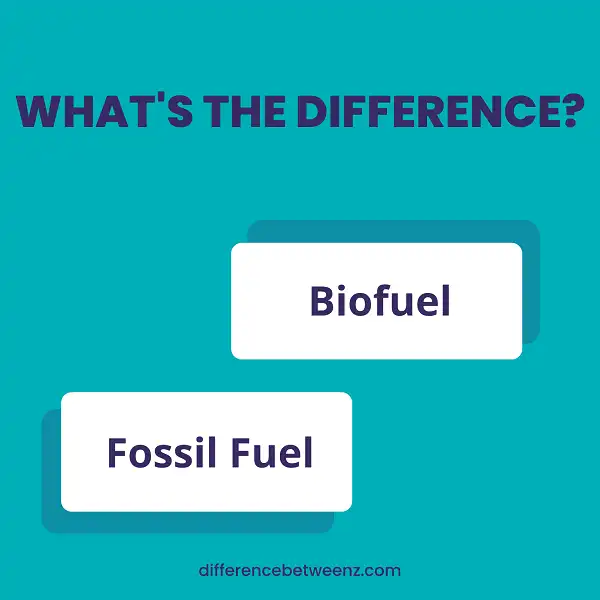The use of biofuels and fossil fuels are two different ways to power vehicles. Biofuels are derived from organic matter, while fossil fuels come from the remains of prehistoric plants and animals. Fossil fuels are more efficient than biofuels, but they produce pollutants that can harm the environment. Biofuels are more environmentally friendly than fossil fuels, but they are not as efficient.
What is Biofuel?
- Biofuel is a renewable energy source that is derived from plants and other organic materials. Unlike fossil fuels, which are finite resources that will eventually be depleted, biofuel can be replenished through sustainable practices such as agriculture and forestry.
- There are a variety of different types of biofuel, each with its own benefits and drawbacks. For example, biodiesel is a popular choice for powering vehicles because it can be used in conventional diesel engines with only minor modifications.
- However, biodiesel has a relatively low energy density, meaning that more fuel is required to travel the same distance as gasoline or diesel. Alternatively, ethanol is commonly used as an additive to gasoline, but it has a lower octane rating than gasoline and therefore cannot be used alone in most engines. Biofuel is a promising alternative to fossil fuels, but further research is needed to develop more efficient and scalable production methods.
What is Fossil Fuel?
Fossil fuels are a type of energy source that comes from the remains of ancient organisms. These organisms include plants and animals that died millions of years ago and were then compressed over time to form coal, oil, and natural gas. Today, fossil fuels are used to generate electricity, power cars and airplanes, and heat our homes. While they are an abundant and relatively inexpensive source of energy, fossil fuels also come with some environmental drawbacks. For example, when burned, they release harmful emissions into the atmosphere, contributing to air pollution and climate change. Additionally, fossil fuels are non-renewable resources, meaning they will eventually run out.
Difference between Biofuel and Fossil Fuel
- Biofuels are derived from renewable organic materials, such as plants and algae. In contrast, fossil fuels are formed from the remains of prehistoric organisms that have been buried deep within the earth and subjected to high pressure and temperature over millions of years.
- As a result, biofuels are much cleaner burning than fossil fuels, and their use can help to reduce greenhouse gas emissions. Additionally, biofuels are much more efficient than fossil fuels, meaning that they can provide more energy per unit of mass.
Finally, biofuels are renewable, meaning that they can be replenished through sustainable practices, whereas fossil fuels are finite resources that will eventually be depleted.
Conclusion
Biofuels are renewable energy sources that come from biological materials. The most common type of biofuel is ethanol, which is made from plants like corn or sugarcane. Biofuels can be burned in cars or trucks just like gasoline, and they also create electricity. Fossil fuels are a non-renewable energy source that comes from the buried remains of plants and animals that have been converted into oil, coal, or natural gas. Fossil fuels are used to produce electricity and to power vehicles. Biofuels are better for the environment because they release fewer greenhouse gases than fossil fuels. Biofuels also take less time to biodegrade than fossil fuels.


